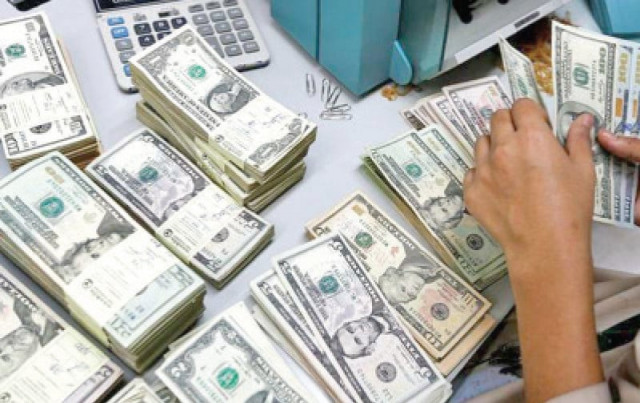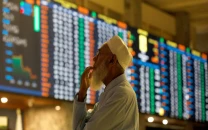Reserves triple without new debt
SBP governor pushes digital inclusion with Raast expansion, new banking rules

Pakistan's economy has navigated one of the most turbulent times in recent history, marked by record inflation, depleted foreign exchange reserves and external account pressures.
From inflation peaking at 38% in May 2023 to reserves falling to critically low levels at $4.4 billion, the country faced severe macroeconomic instability. However, decisive monetary tightening, structural reforms and improved external inflows have shifted the trajectory towards stability. Speaking at the Independence Day event, State Bank of Pakistan (SBP) Governor Jameel Ahmad said the economy is now on a path to sustainable growth, with inflation brought down to historic lows, reserves tripled without adding foreign debt and the current account posting a surplus for the first time in more than a decade.
The SBP commemorated the Independence Day with a flag hoisting ceremony. In his keynote address, Governor Jameel Ahmad said that the SBP is striving to ensure monetary and financial stability for long-term prosperity of the nation.
He noted that in the recent past, "we have faced unprecedented economic challenges and we are now on a path towards economic stability and sustainable growth". The governor pointed out that inflation had reached 38% in May 2023 and in response, the SBP adopted a series of measures. These efforts paid off, with inflation dropping to 11.8% by May 2024 and to a historic low of 3.2% by June 2025.
He remarked that the SBP responded to the improving inflation outlook by reducing its policy rate in seven gradual steps, from 22% to 11%, since June 2024. "Our monetary policy remains geared towards maintaining the hard-earned gains in price stability, while ensuring inflation remains within 5-7%," Ahmad said. "This will help unlock broader economic and business opportunities."
Regarding external sector improvements, he shared that Pakistan's foreign exchange reserves have nearly tripled, rising from $4.4 billion at the end of FY23 to $14.5 billion by the end of FY25. The current account surplus of $2.1 billion, the first in 14 years, and record-high remittances of $38.3 billion from overseas Pakistanis have significantly contributed to this improvement.
Ahmad stressed that the SBP has endeavoured to build foreign exchange reserves to improve economic resilience against external shocks, adding that the increase in reserves has been achieved without any rise in foreign debt. International credit rating agencies have upgraded Pakistan's rating in recognition of recent measures, which will help unlock foreign investment opportunities.
Stressing the importance of technological innovation in financial inclusion, the governor highlighted the SBP's digital initiatives, including the spinning off Raast – Pakistan's instant payment system – into a separate subsidiary to enhance service offerings for the adoption of digital payments. In addition, the SBP has taken a number of measures to modernise payment infrastructure to enable the public to transact and remit funds through state-of-the-art facilities.
He also said that the central bank has recently introduced an improved framework that allows the opening of accounts without the need to visit a bank branch. This will benefit the public, especially women.





















COMMENTS (1)
Comments are moderated and generally will be posted if they are on-topic and not abusive.
For more information, please see our Comments FAQ